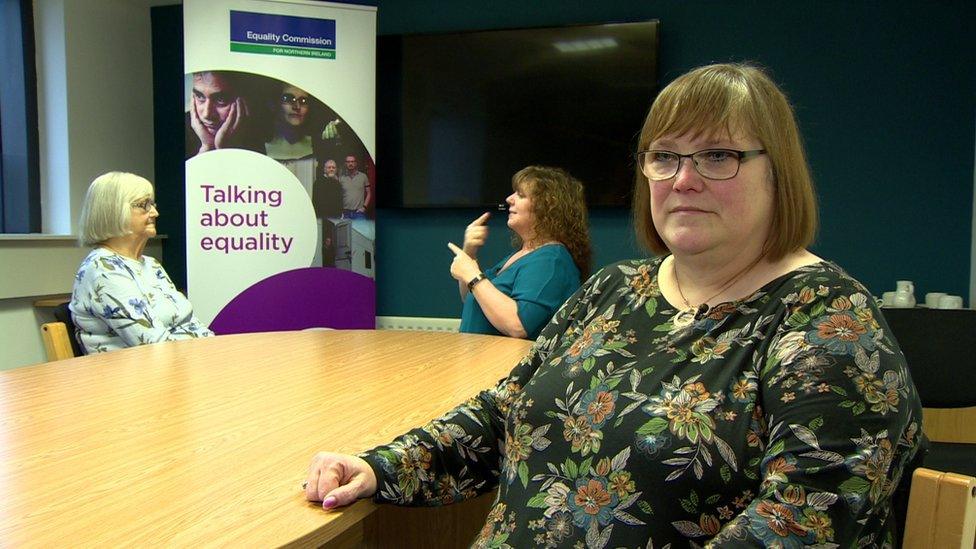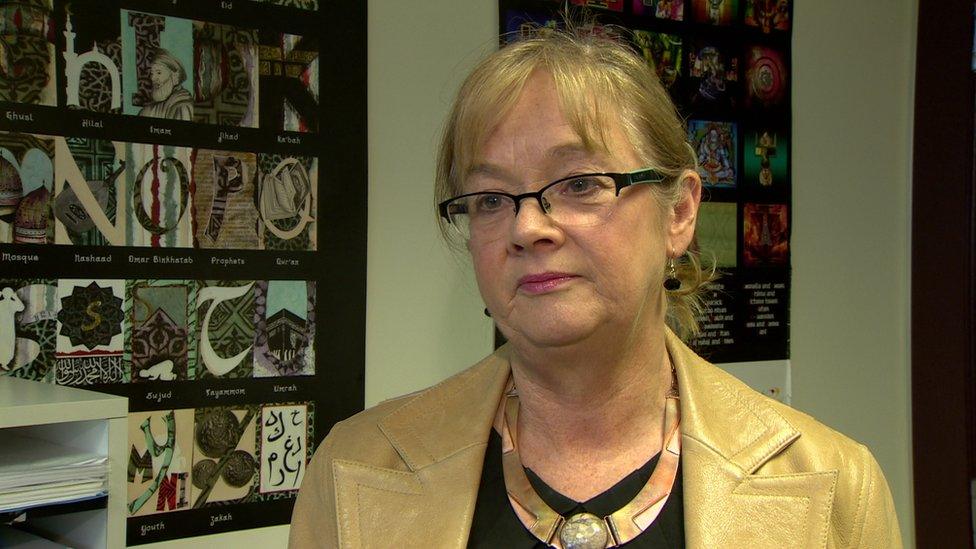Family of deaf man had to tell him he was dying
- Published

Jillian Shanks said she was very upset at having to tell her father that he was terminally ill
A health trust has apologised to the family of a deaf man who had to tell him he was dying because a hospital did not provide a sign-language interpreter.
The South-Eastern Health and Social Care Trust has paid £7,000 compensation to Thomas Carson's family.
He received the news in late 2016 from his daughter, Jillian Shanks.
Mr Carson, who has since passed away, was being treated in the Ulster Hospital at the time.
'Distress'
The family brought a case against the trust, with the support of the Equality Commission, under the Disability Discrimination Act over the trust's failure to provide an interpreter.
The commission said the trust had apologised for the distress caused to the family and for the fact that it had not acted in accordance with its own policies in not providing an interpreter.
Ms Shanks said the family were upset that her father could not be told his condition directly from the consultant.
"As a family, we felt it was his right, as an independent person, to be told he was dying but he didn't have the choice.
"Maybe he didn't want us to know that he was dying."
'Not good enough'
She said that her father was "profoundly deaf" and that "sign language was his first language" and added she "went on auto pilot" after being asked to tell him his condition.
"It was very upsetting for me to have to tell my father he was dying and very, very upsetting for my mother, because obviously she was grieving as a wife but also then we have to explain to my father he's dying.
"Once we did tell him, he was actually consoling my mother because she was very upset."
Ms Shanks added that there was a "process and protocol" for securing a sign-language interpreter and the family "just don't understand why it wasn't utilised".
She added: "After talking it over with my family, and other people in the deaf community, you realise it's just not good enough for deaf people, there's a service out there that should've been used.
"Anybody else who has maybe got a different language for their first language, an interpreter can be brought in - so I can't understand why it can't be that simple for a deaf person."
'First case of its kind'
She added: "It's certainly not a victory by any means, what we wanted to do was to create more awareness for deaf people.
"For everyone to understand that deaf people are a community of their own, they don't speak English as a first language and sign language is very, very important to them."

Anne McKernan said it was important lessons were learned from the case
Anne McKernan, director of legal services at the Equality Commission, said it was the first case of its kind within the health sector that she could recall.
"The health service have in place a protocol for access an interpreting and translation service, and I think it was a want of thought, really, in this instance.
"We accept that they didn't intend to discriminate against Mr Carson and his family but the fact of the matter was the protocol wasn't enacted at a time when this family were probably experiencing the most vulnerable time in their lives.
"So that's why I feel it is important that lessons are learned from this."